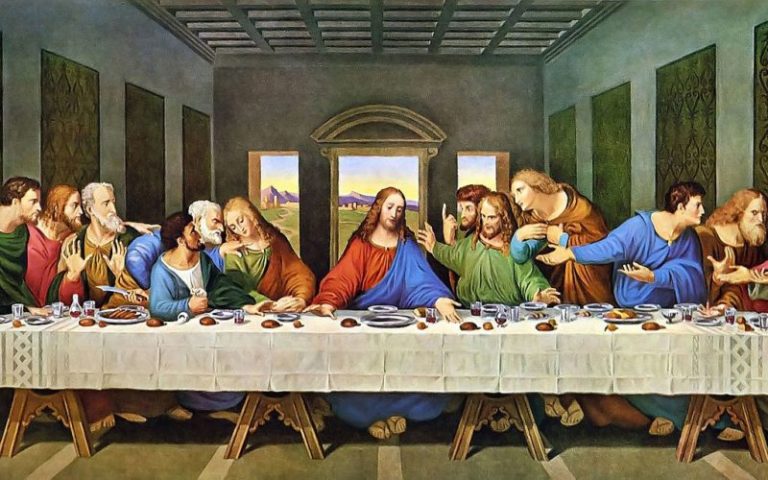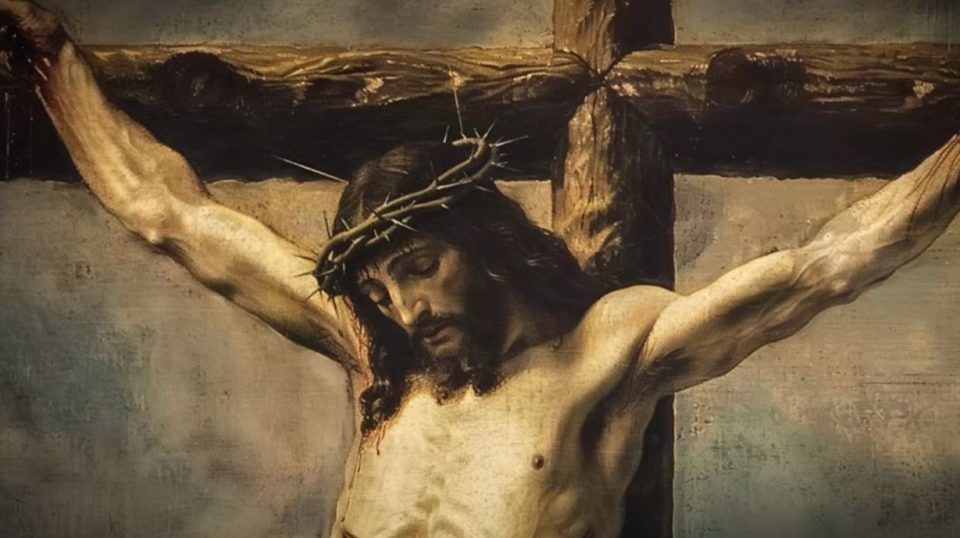Happy Spy Wednesday, everyone! The nickname for the Wednesday of Holy Week comes from today’s gospel, in which we are told that Judas ‘looked for’ a way to betray Jesus. The complete Gospel, Matthew 26:14-25, is as follows:
“One of the Twelve, the man called Judas Iscariot, went to the chief priests and said, ‘What are you prepared to give me if I hand him over to you?’ They paid him thirty silver pieces, and from that moment he looked for an opportunity to betray him.
Now on the first day of Unleavened Bread the disciples came to Jesus to say, ‘Where do you want us to make the preparations for you to eat the passover?’ ‘Go to so-and-so in the city’ he replied ‘and say to him, “The Master says: My time is near. It is at your house that I am keeping Passover with my disciples.”’ The disciples did what Jesus told them and prepared the Passover.
When evening came he was at table with the twelve disciples. And while they were eating he said ‘I tell you solemnly, one of you is about to betray me.’ They were greatly distressed and started asking him in turn, ‘Not I, Lord, surely?’ He answered, ‘Someone who has dipped his hand into the dish with me, will betray me. The Son of Man is going to his fate, as the scriptures say he will, but alas for that man by whom the Son of Man is betrayed! Better for that man if he had never been born!’ Judas, who was to betray him; asked in his turn, ‘Not I, Rabbi, surely?’ ‘They are your own words’ answered Jesus.”
We don’t know why Judas wanted to betray Jesus. There are numerous theories, some of them plausible, and it is a fascinating subject, one on which I have written before. No doubt this Easter, people will still be speculating about what made the Man of Kerioth do what he did.
Most interesting in the Gospel above, though, and rather important for our own age, is the fact that Jesus sent his disciples, clearly with prearrangement, to a person in the city, who may have been the mother of Saint Mark. But it is important to notice that in a break with Jewish tradition, Jesus did not celebrate the Passover with a family group. There were no women present, not even, it seems, to do the cooking, for the preparation of the Passover is in the hands of the disciples, who are male. And at the table of the Last Supper, no women were present, even though Jewish tradition makes it clear that the mother of the house and the children have an important role to play.
And yet it is clear from an attentive reading of the gospel accounts that the owners of the building were celebrating their own seder separately; as was the Virgin Mary, as was Saint Mary Magdalene; as were the Holy Women who until this point, had accompanied Jesus and looked after his physical needs (Matthew 27:55) which presumably meant that they had been at his seders of previous years.
So why did Jesus so pointedly exclude his female followers from the Last Supper? The answer lies in the following: the Last Supper was not a seder like the previous seders. In it he was founding the priesthood, a new structure, one that he was bequeathing exclusively to His apostles and to no one else. There is no other rational explanation. Needless to say, I do not consider the idea that the Son of God was bound by social convention that he could not subvert to be a rational explanation.
It saddens me that so many people who think they are Catholic seem to believe in women priests. I hope this is because they have not thought about it properly, or because they have not read the Scriptures with due attention. The desire to correct the Son of God, or to improve on what he has bequeathed us is not a good desire. Saint John Paul II was certainly right about that!







